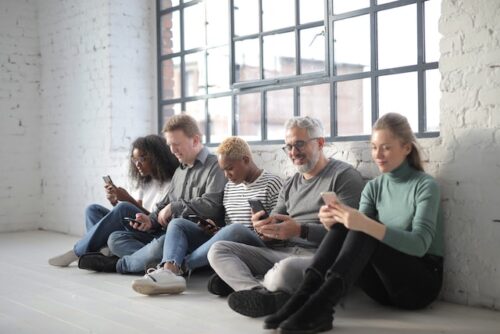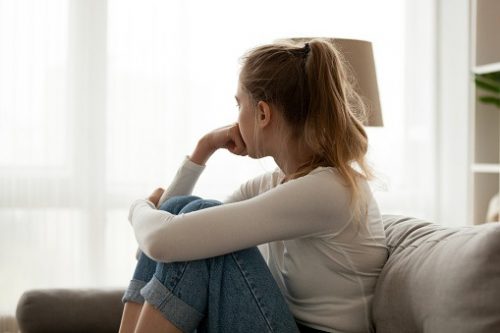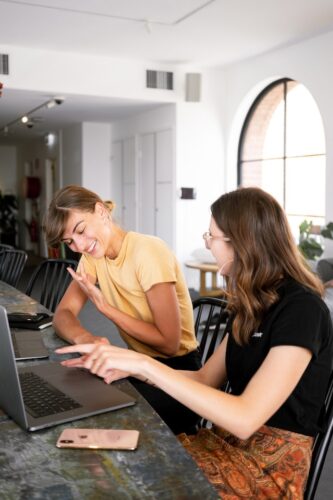What to understand about social anxiety disorders?

Some of the people close to me usually ask me why I keep myself isolated. They get confused about why I socially isolated myself with my computer for more than 8 hours a day. Some even question why I don’t go out and socialize with others. Honestly, it is all related to my mental health issue that I don’t want to talk about. I don’t often go out, and I don’t mingle with people because I get socially anxious when surrounded by individuals I do not know.
Some people think I am a loner, and that is okay. As long as I can avoid social interactions, I can spend the rest of my life isolated in my room playing computer games. Some may think it is weird, but I can honestly say I can get used to that setup. Perhaps that is because I am already battling a mental health condition, so I am no longer interested in any acquaintances.
At What Age Does Social Anxiety Begin?
Social anxiety disorder, also called social phobia, usually begins around 13 years of age. Environmental factors that are associated with it include bullying or a history of abuse. It could also come from childhood trauma or can be a result of having overbearing or controlling parents.
As for my situation, I can’t tell. It just happened that I became so scared to be around people. Maybe it has something to do with the things I like, which is not usually what others would feel comfortable dealing with. I like playing video games, and I must admit, I am addicted to them. Since not everyone I know likes to spend all their time in front of the computer, it changes everything.
Can You Self-Diagnose The Mental Health Condition?
No. You cannot self-diagnose any mental health disorders, including social phobia or social anxiety. There is no medical test to check the exact presence of the rate of the condition. Only a professional expert or a healthcare provider can diagnose social fear by describing your physical symptoms and examining certain behavioral patterns. If you want to learn more about mental disorders, you may check them out on the Diagnostic and Statistical Manual of Mental Disorders.
What Triggers The Mental Health?
Social anxiety is triggered by negative social interaction experiences such as rejection, bullying, teasing, ridicule, or humiliation. Having intense fear when it comes to social interactions such as those can contribute to one developing social anxiety disorder. It gets triggered when there are ongoing stressful life events and trauma from physical, sexual, or emotional abuse. It can also come from a family history where you become more likely to develop social anxiety disorder if your biological parents or siblings are diagnosed with a mental health problem. Many things can trigger social anxiety.
Honestly, I think my social anxiety got worse when I developed extreme emotional dilemmas. When depression hits me, I felt so alone that I do not want anyone to be near me. That is because I can only hear judgments and assumptions. Most of the people I know think that I am overreacting and hurt my feelings even more.
Can you have mild social anxiety?
There is no mild to moderate anxiety. Mild-to-moderate social anxiety is still a social anxiety disorder.
The treatment options and programs are still necessary to control any form or any level of anxiety intensity. Make sure to get your social anxiety disorder treated. Mild and moderate social anxiety will still experience feeling nervous, restless, increased heart rate, and feeling weak or tired. You can still have problems concentrating or thinking about anything other than the present worry.
Therefore, whatever I do, as long as I tend to avoid people, it is still considered social anxiety. Regardless of what I do or who I want to spend my time with, I don’t think I will live with it when there are too many people around.

What should I do if I think I have social anxiety?
One thing you have to do is understand the condition. Thus, it would be advisable to have a diagnosis first, usually administered by a mental health expert before treating social anxiety disorder. You need to consult your doctor or a health care provider about the best treatment so you can manage to know how to deal with your social anxiety. Typically, social anxiety disorder is generally treated with psychotherapy or also known as “talk” therapy. However, medications such as selective serotonin reuptake inhibitors or both can work as well. Cognitive behavioral therapy is studied to be one of the most effective ways to treat social anxiety disorder and other mental health conditions or psychiatric disorders. Therapy CBT also works well to treat depression and substance abuse.
Note that not because you are on medication and therapy, that does not mean you will get better in no time. Trust me. The process is long and tiring. The agony of trying to be better is worse than assuming that you are okay. It takes time and effort to be able to be socially active once again finally.
How can I fix my social anxiety?
People with social anxiety can often feel uncomfortable and too self-conscious, and avoid eye contact with others. To avoid and fix that, you need to learn how to control your breathing. You can incorporate it when you do your morning or evening meditation, as it works best when you are concentrated and focused. Avoid distractions and use your senses to exercise or progressive muscle relaxation. Focus on yourself and always talk back to negative thoughts to reduce anxiety.
The process is not going to be easy, and that is a fact. You need to pull yourself and focus on your mental health recovery. Because if you can’t handle the pressure, things will crumble down, and you might get trapped in a social situation that can add more mental health problems in the long run.
Can you beat anxiety without medication?
At times, there is a chance that you can win the anxiety battle without medication as long as you consider mindfulness meditation. It helps in overcoming worry and nervousness simply by modifying your thoughts, behavior, and lifestyle. It works so well with many patients that some psychotherapeutic methods use it as a basis of treatment.
How can I kill anxiety naturally?
You can get rid of anxiety naturally if you consider these things: Regularly exercising, avoiding late-night alcohol and caffeine consumption, eating a well-balanced diet, getting enough sleep, drinking plenty of water, quitting smoking, practicing deep breathing, and meditating to promote self-consciousness and relaxation. You can also consider having a meaningful conversation with a friend or family or simply setting time for self-talk. Another thing you can do is fix printers’ mental health recovery.
What does the Bible say about anxiety?
The Bible often talks about anxiety. There is always a constant reminder not to worry about your health or anything because God is with you. By reading the Bible, internalizing God’s word, and praying to him, you can lighten the stress that weighs your heart and mind down. People with social anxiety can rely on God’s words
Does CBD help anxiety?
CBD products show excellent results in treating mental disorders such as social anxiety disorder, general anxiety disorders, post-traumatic stress disorder, anxiety-induced insomnia, and other anxiety disorders. Many feel CBD’s effects almost instantly, but it could usually take anywhere from 15-60 minutes.
Are there any bad side effects of CBD?
CBD is often permitted specifically for medicinal purposes. However, it causes side effects, such as reduced appetite, nausea, diarrhea, dry mouth, and restlessness. CBD can also interact with other medications currently prescribed and work differently, such as blood thinners.
Does CBD do anything?
Contrary to what others believe, there’s no evidence that CBD cures cancer. Though some research shows its damaging effects on the body and brain, there is still moderate evidence that CBD improves fibromyalgia pain, sleep disorders, muscle spasticity related to multiple sclerosis, as well as certain conditions of anxiety.

How to Help Someone With Social Anxiety
Helping someone with social anxiety can be a challenging and sensitive task. However, with patience and understanding, there are many ways you can support and encourage them. Here are some tips:
- Educate Yourself: Learn about the symptoms of social anxiety so that you can better understand what your friend or loved one is going through. You can find information online, in books, or by talking to mental health professionals. Once you know the social anxiety disorder symptoms, you’ll be able to figure out and empathize when you see one. Just be aware that anxiety symptoms can be visible or ambiguous depending on each person.
- Listen and Validate Their Feelings: Let the person know that their feelings are valid and that you understand how difficult social situations can be for them. Avoid minimizing their anxiety or telling them to “just get over it.”
- Encourage Them to Seek Professional Help: Social anxiety disorder is a treatable condition, and a mental health professional can help your friend or loved one develop coping skills and strategies to manage their anxiety disorders. Encourage them to speak to a doctor, therapist, or counselor.
- Offer Support: Let the person know that you are there for them and offer your support in any way you can. This could mean attending social events with them, helping them practice relaxation techniques, or just being a listening ear.
- Be Patient: Remember that overcoming social anxiety is a process, and it may take time. Don’t pressure the person to do things that make them uncomfortable, but gently encourage them to step outside of their comfort zone.
- Avoid Enabling Behaviors: While it’s important to be supportive, it’s also important to avoid enabling behaviors that may reinforce the person’s anxiety. For example, if they’re afraid to go to a party alone, don’t always offer to go with them. Instead, encourage them to try going alone and offer to meet up with them later.
- Celebrate Small Victories: Recognize and celebrate the person’s progress, no matter how small. This can be a great motivator and help them build confidence.
Remember that social anxiety disorder can be a challenging condition, but with the right support and treatment, it is possible to manage and overcome it.
Tips to Handle Social Anxiety in Social Situations
Social anxiety symptoms can be particularly difficult in social situations. However, there are ways to manage social anxiety that can help you feel more comfortable and confident in social situations.
Prepare in Advance: If you know you have a social event coming up, plan. Think about what you’ll wear, what you’ll say, and what you might do if you feel anxious. This can help you feel more in control and reduce anxiety.
Use Relaxation Techniques: Deep breathing, meditation, and progressive muscle relaxation are all techniques that can help reduce anxiety in social situations. Practice these techniques regularly to help them become more effective.
Practice Exposure Therapy: Exposure therapy involves gradually exposing yourself to situations that make you anxious. Start with small steps, such as attending a small social gathering or meeting up with a friend in a quiet place. As you become more comfortable, gradually increase the difficulty of the social situations you expose yourself to.
Focus on the Present Moment: Try to stay in the present moment rather than worrying about the past or the future. Focus on what’s happening in certain situations right now and what you’re experiencing.
Challenge Negative Thoughts: Social anxiety can cause you to have negative thoughts about yourself and your abilities. Challenge these thoughts by asking yourself if they’re realistic or if there’s evidence to support them.
Insight
A lot of people assume that social anxiety is just something one invented to avoid social situations. But the truth is, its existence is something that no one can explain. According to the National Institute of Mental Health, people with social anxiety are not just introverted or just shyness because there is a mental pressure that lies within the mental health condition.
How do you know if you have social anxiety?
Do I have social anxiety, or am I just shy?
Why am I so socially awkward?
What is commonly mistaken for social anxiety?
How do I make friends with social anxiety?